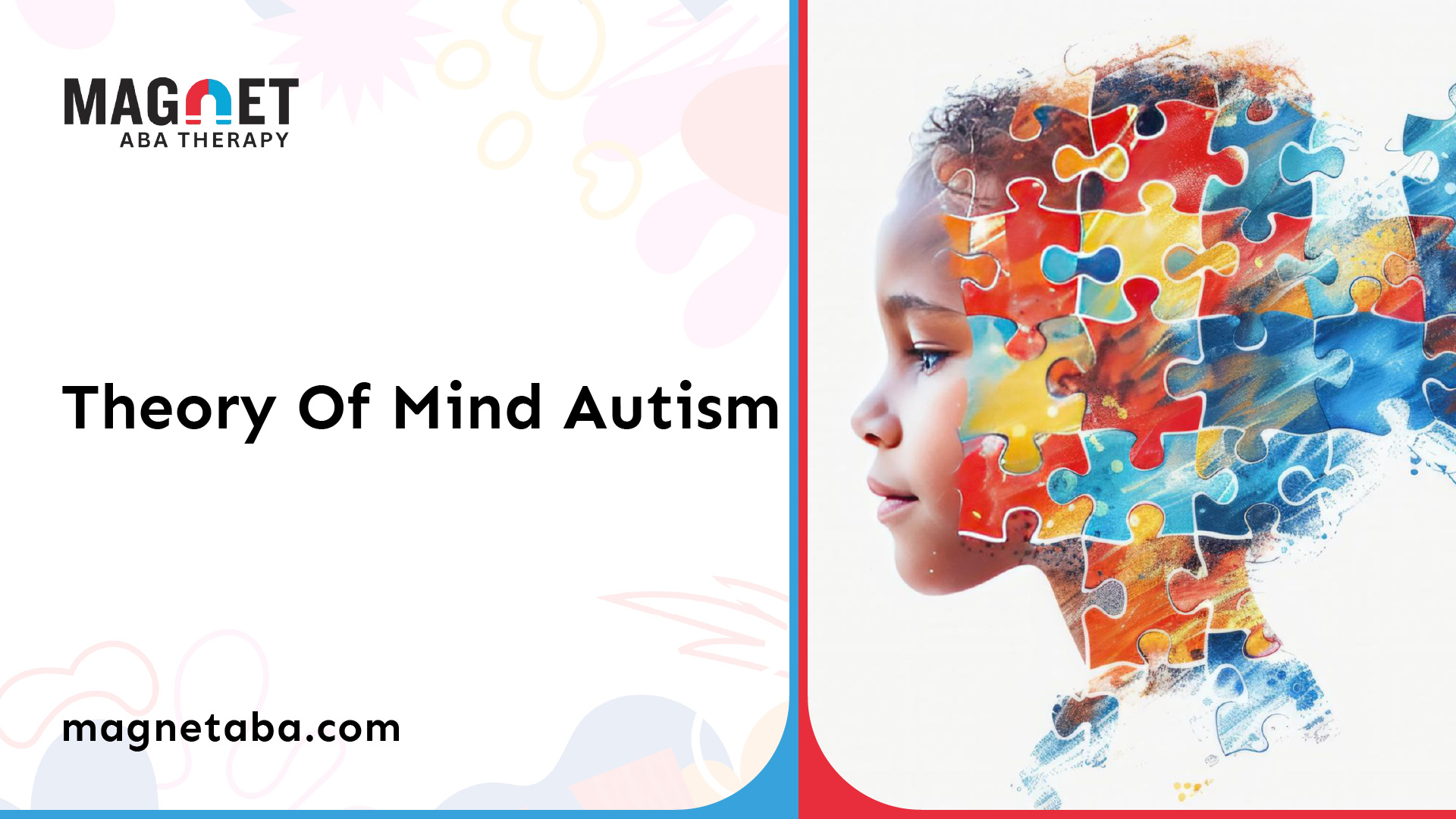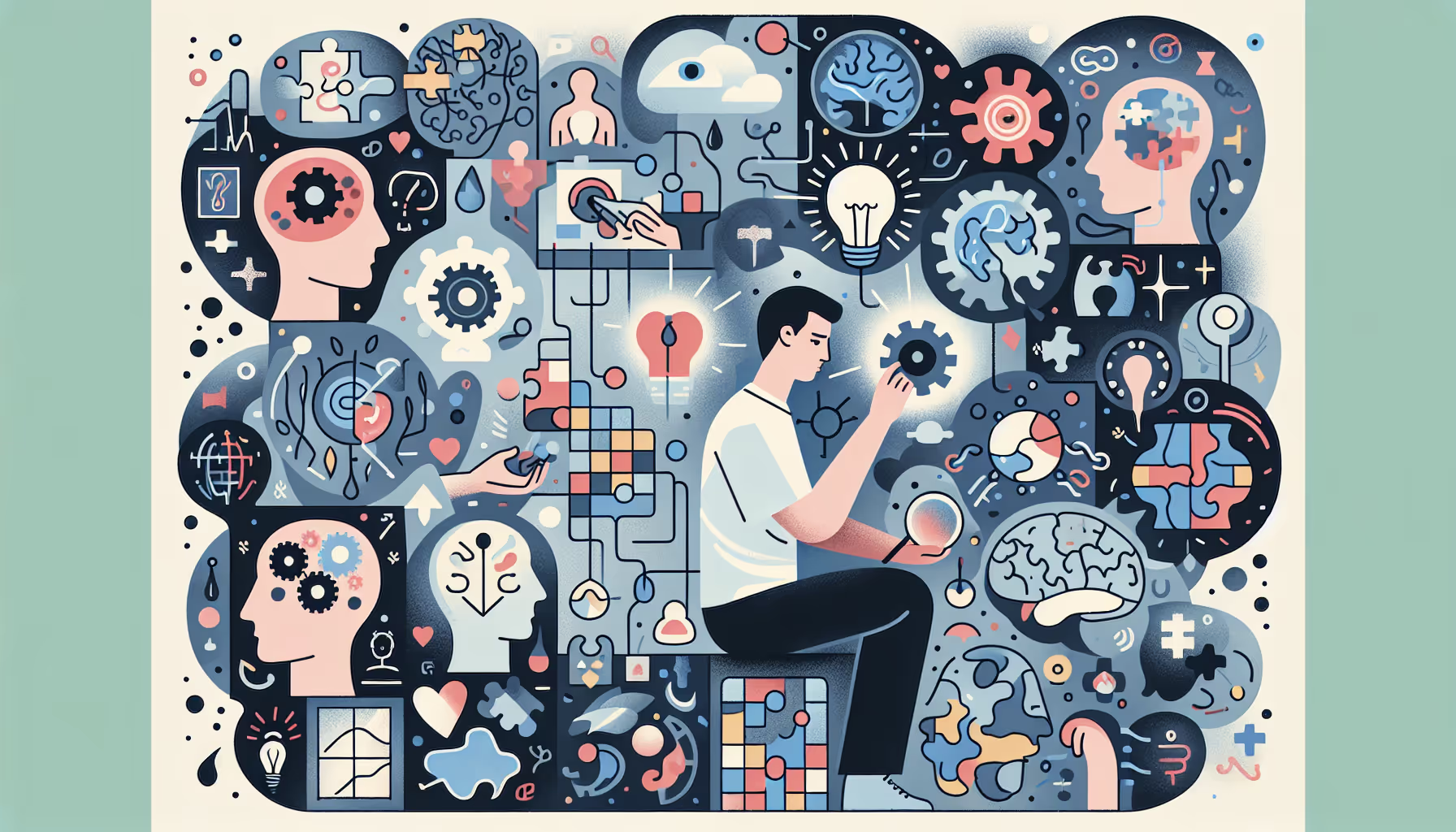Understanding Theory of Mind
To comprehend the concept of theory of mind, it is essential to define it and understand its significance in social interaction.
Definition of Theory of Mind
Theory of mind, also known as mentalizing, refers to the cognitive capacity to infer the mental states of others. It involves the ability to explain, predict, and interpret behavior by attributing mental states such as desires, beliefs, intentions, and emotions to oneself and others. In simple terms, theory of mind is the understanding that other individuals possess their own unique thoughts, feelings, beliefs, and perspectives, which may differ from our own.

Importance in Social Interaction
Theory of mind plays a crucial role in social interaction and social understanding. It allows individuals to recognize and interpret the mental states of others, enabling them to predict and interpret their actions [3]. By understanding that others have thoughts and emotions that influence their behavior, individuals can adjust their own behavior accordingly. This understanding facilitates effective communication, empathy, and building relationships.
When individuals have a well-developed theory of mind, they are better equipped to navigate social situations. They can perceive subtle cues, understand sarcasm or humor, gauge others' perspectives, and respond accordingly. Theory of mind helps in building and maintaining social connections, fostering empathy, and developing a deeper understanding of others.
Understanding theory of mind is particularly relevant in the context of autism spectrum disorder (ASD). Individuals with ASD often experience challenges in theory of mind, which can impact their social interactions and communication skills. By recognizing and addressing these challenges, interventions can be designed to support the development of theory of mind skills in individuals with ASD.
In summary, theory of mind refers to the ability to understand that others have their own thoughts, beliefs, and perspectives, which may differ from our own. It is a fundamental cognitive capacity that plays a vital role in social interaction and social understanding. Developing a strong theory of mind allows individuals to effectively navigate social situations, empathize with others, and build meaningful relationships.
Theory of Mind in Autism
Understanding how theory of mind operates in individuals with autism spectrum disorder (ASD) is crucial for comprehending the social and communication difficulties they often face. In this section, we will explore the theory of mind impairment observed in individuals with ASD and the developmental differences associated with it.
Theory of Mind Impairment in Individuals with ASD
Theory of mind refers to the cognitive capacity to infer and understand the mental states of others, such as beliefs, desires, and intentions. It plays a vital role in social communication and interaction. However, individuals with ASD often experience challenges in theory of mind [3].
One study found that even high-functioning adults with ASD, who can pass the false belief task when explicitly asked to, struggle with spontaneous false belief attribution [3]. This suggests that while they may possess the ability to understand others' mental states in certain situations, they struggle with spontaneously applying this understanding in real-life interactions.
Developmental Differences in Theory of Mind
The impairment of theory of mind is closely related to autism spectrum disorder (ASD), which is characterized by significant difficulties in social interaction and communication [3]. Research has shown that individuals with ASD may exhibit developmental differences in their theory of mind abilities compared to neurotypical individuals.
For instance, children with ASD may have delayed theory of mind development, struggling to understand and predict the thoughts, feelings, and intentions of others. This can make it challenging for them to engage in perspective-taking and empathize with others [2]. These developmental differences in theory of mind can significantly impact their social interactions and communication skills.
Understanding the theory of mind impairment and developmental differences in individuals with ASD is crucial for developing effective interventions and therapies to support their social and communication development. By providing targeted support and strategies, individuals with ASD can learn to navigate social interactions and enhance their theory of mind abilities.
Challenges and Impact
Individuals with autism spectrum disorder (ASD) often face challenges related to theory of mind, which can have a significant impact on their social interactions and communication abilities. Understanding these challenges is crucial for providing appropriate support and interventions.
Social and Communication Difficulties
Theory of mind impairment in individuals with ASD can lead to difficulties in understanding and interpreting the thoughts, beliefs, and emotions of others. This can hinder their ability to engage in effective social interactions and communication. Due to their struggles in perspective-taking and mentalizing, individuals with ASD may find it challenging to comprehend sarcasm, irony, or the intentions behind other people's actions. This can result in misinterpretations and difficulties in building and maintaining relationships.
Relationship with Adaptive Behavior
Theory of mind difficulties in individuals with autism can impact their adaptive behavior, which refers to the skills needed to function independently in daily life. The ability to understand and respond appropriately to social cues and social expectations is a crucial aspect of adaptive behavior. Theory of mind impairment can hinder individuals with ASD from effectively navigating social situations, understanding social norms, and appropriately responding to social cues. As a result, their adaptive behavior may be affected, making certain daily tasks more challenging.
It is important to note that the impact of theory of mind difficulties can vary among individuals with ASD. Some individuals may exhibit more severe impairments, while others may show relatively better theory of mind abilities. The variability in theory of mind skills within the autism spectrum highlights the need for individualized support and interventions tailored to each person's specific needs.
Understanding the challenges and impact of theory of mind difficulties in individuals with ASD is crucial for developing strategies and interventions to enhance their social interactions, communication skills, and adaptive behavior. Through targeted therapies, interventions, and support from parents and professionals, individuals with autism can develop and improve their theory of mind abilities, fostering more effective social interactions and enhancing their overall quality of life.
Research and Findings
In the realm of theory of mind and autism, extensive research has shed light on the variability in theory of mind abilities among individuals with autism spectrum disorder (ASD) as well as its link to symptom severity.
Variability in Theory of Mind Abilities
Theory of mind, which refers to the cognitive capacity to infer others' mental states, is crucial for the development of social communication. However, it is impaired in individuals with ASD. Studies have shown that there is a wide range of theory of mind abilities within the ASD population. While some individuals with ASD may struggle with basic perspective-taking and understanding others' emotions, others may demonstrate more advanced theory of mind skills.
One interesting finding is that high-functioning adults with ASD, who can pass the false belief task when explicitly asked to, do not typically show spontaneous false belief attribution [3]. This indicates that individuals with ASD may have difficulty automatically attributing false beliefs to others in real-life social situations, even if they can demonstrate the skill in a controlled experimental setting.
Link to Symptom Severity in ASD
Theory of mind difficulties in autism can have a significant impact on communication and social skills. Individuals with ASD may face challenges in understanding and interpreting the thoughts, beliefs, and emotions of others, as well as in building and maintaining relationships. Research has shown that theory of mind deficits are prevalent in individuals with ASD and are associated with symptom severity in social communication difficulties and restricted and repetitive behaviors.
Understanding the role of theory of mind in the context of autism can help parents, caregivers, and professionals better support individuals with ASD. By recognizing the variability in theory of mind abilities and its impact on symptom severity, interventions and therapies can be tailored to address the specific needs of individuals with autism.
Enhancing Theory of Mind
Parents play a crucial role in supporting and enhancing the development of theory of mind in children with autism spectrum disorder (ASD). By actively engaging in certain strategies and interventions, parents can help their children improve their understanding of others' thoughts and feelings.
Role of Parents in Supporting Theory of Mind Development
Parents can create an environment that fosters theory of mind development by engaging in meaningful conversations with their children. According to the Hanen Centre, when parents use words related to thinking and feeling in their interactions with children, it positively influences theory of mind development. Conversations between parents and children provide opportunities to verbalize thoughts and feelings, allowing children to deepen their understanding of their own emotions and recognize different thoughts and feelings in others.
By actively discussing and reflecting on various situations, parents can help their children comprehend how actions are influenced by thoughts and emotions. These interactions play a crucial role in promoting theory of mind in children.
Therapies and Interventions for Theory of Mind Improvement
In addition to parental support, various therapies and interventions can be beneficial in improving theory of mind in individuals with ASD. Some commonly used therapies include:
Behavior Therapy
Behavior therapy, based on applied behavior analysis (ABA), aims to encourage desired behaviors and reduce unwanted behaviors. It helps children with ASD understand the connection between behaviors and consequences. ABA-based therapy can improve a child's life skills, intellectual abilities, and social skills.
Early Start Denver Model (ESDM)
ESDM is an approach that works best for children between the ages of 12 to 48 months. It incorporates ABA practices and focuses on creating positive social interactions while enhancing communication and cognitive skills. ESDM has been found to improve language and communication skills, as well as adaptive behavior.
Pivotal Response Treatment (PRT)
PRT is a play-based approach that also follows ABA practices. It targets broader areas, including motivation, self-management, response to multiple cues, and initiation of social interactions. PRT helps children make broad improvements in social skills and communication. Studies suggest that PRT can be effective at building communication skills in children.
Discrete Trial Training (DTT)
DTT is an ABA-based approach that breaks down skills into smaller pieces. It has been used since the 1970s and is effective in teaching skills to children with ASD. While DTT doesn't involve as much natural play as ESDM or PRT, it is still a valuable intervention for improving various skills in children with ASD.
By actively engaging in these therapies and interventions, parents can help their children develop and enhance their theory of mind abilities. It is important to consult with professionals and therapists to determine the most suitable approach for each child's unique needs.
References
[3]:
[4]:
[5]:












